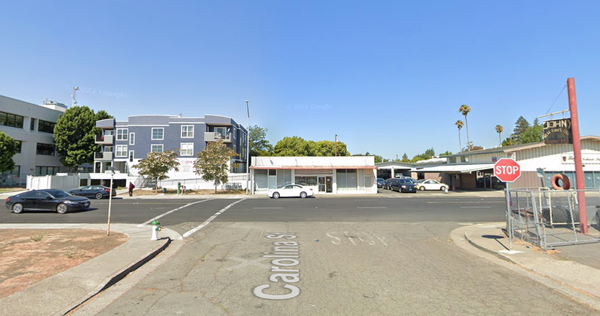
The two-state solution could do with a rebrand.
The optimism that greeted the Oslo peace accords between Israel and the Palestinians three decades ago has long since given way to eye rolling and grimaces among politicians and diplomats at any mention of the “peace process”. For years, they have been obliged to pay lip service to the vision while, in practice, many were resigned to the two-state solution as a byword for failure and a cover for inaction. Mostly they tried to avoid talking about it at all.
But now the two-state solution is showing its face in public again. In the wake of the Hamas cross-border attack from Gaza, and the Israeli assault on the Palestinian enclave in response, President Joe Biden is punting the peace process back on to the agenda. “When this crisis is over, there has to be a vision of what comes next. And in our view, it has to be a two-state solution,” he said. “And that means a concentrated effort for all the parties – Israelis, Palestinians, regional partners, global leaders – to put us on a path toward peace.”
The US secretary of state, Antony Blinken, reiterated the point in Tel Aviv last week when he described two states for two peoples as “the best path, maybe even the only path”.
American and European politicians have all too often used a call for a return to the peace process as a get-out to avoid directly addressing the deepening of Israel’s oppressive rule in the occupied territories. Benjamin Netanyahu, Israel’s longest serving prime minister, has exploited this unwillingness to stand up to him as his governments worked to kill off the prospect of a viable Palestinian state by expanding settlements and tightening the grip of occupation.
So it isn’t a surprise that Biden’s call hasn’t been met with bubbling enthusiasm in other capitals. But whatever name you give it – and some would rather call it partition or separation – the president is right to shift the focus on to two states for one overriding reason. It’s hard to see another outcome that will fly in the near term, and there’s an urgent need to establish the borders of an independent Palestine to block Israel’s grinding colonisation of the West Bank.
Netanyahu’s policies and the collapse of any meaningful peace process have driven debate about the creation of a single country of Israelis and Palestinians, a one-state solution. But even with a sharp decline in Israeli public support for an independent Palestine, only about one in 10 Jewish Israelis back a single state with equal rights for all. The creation of one country with roughly equal numbers of Jews and Arabs would remove the clear Jewish majority at the heart of the Zionist enterprise of self-determination, and the vast majority of Israelis are not going to accept that in any foreseeable future.
Which means a focus on anything other than two states now is a distraction from the alarming reality on the ground, and the need to stop Israel’s imposition on Palestinians of what the Israeli human rights organisation B’Tselem and Amnesty both call apartheid. Or worse. Some on the Israeli right seem to have a thirst to repeat the 1948 Nakba, when Israeli forces drove much of the Palestinian population out of their homes and country.
The outline of a two-state deal has largely been agreed over the decades, even if the result is a deep injustice to the Palestinians in myriad ways. For a start, their state would comprise only about 22% of historic Palestine – the area governed by the British at the time of the UN partition vote in 1947 – even though today Arabs account for roughly half the population of the area now divided up as Israel, the West Bank and Gaza. And there are many millions more people of Palestinian descent in exile.

However, for all that, a genuinely sovereign Palestine would still be a vast improvement on decades of occupation and Israeli domination, and for the first time give Palestinians real government. Unresolved issues of how to divide Jerusalem, guarantees for Israeli security and what to do about Palestinian refugees in neighbouring countries are all difficult, but not insurmountable.
Then there is Hamas, and allied groups such as Islamic Jihad, whose horrific cross-border attack from Gaza has had the, perhaps unintended, consequence of once again drawing the world’s attention to the Israeli-Palestinian conflict. But they have not been the principal obstacle to a two-state deal in the past, and it’s doubtful that Hamas has the power to veto an agreement if a credible Palestinian leader – such as the influential Fatah leader Marwan Barghouti, who is currently imprisoned by Israel for terrorism – were to negotiate one.
The real obstacle has been Netanyahu, who has been in power for nearly half the time since the Oslo accords were signed. He has said for years he will never permit a Palestinian state, and set about killing off the peace agreement from the beginning. Three decades later, he’s closer to his goal than ever.
One of Israel’s standard tactics is to blame the Palestinians for the failure of previous peace negotiations. That’s a convenient narrative about a complex process that, among other things, ignores the part many people believe Netanyahu and the Israeli right played in the 1995 assassination of the prime minister, Yitzhak Rabin, who signed the Oslo accords – the first big crisis of the peace process. Rabin’s widow, Leah, and others on the left accused Netanyahu, while leader of the opposition, of inciting the Jewish nationalist assassin after he led demonstrations at which the crowd chanted “death to Rabin”, and for marching at the head of a mock funeral procession for the prime minister.
But however the blame is parcelled out, no one forced Israel to more than quadruple the number of Jewish settlers in the occupied territories since the Oslo agreement was signed. In 1993, there were about 110,000 settlers in the West Bank outside of occupied East Jerusalem. Now there are nearly 500,000, and the government wants to double that number.
Settlement construction has exploited what was intended as a temporary administrative solution in the Oslo accords, which carved the West Bank into areas of control until a final peace agreement was reached. Israel has exploited its zone – about 60% of the West Bank known as Area C – to expand settlements, construct military bases and build roads that surround the areas under Palestinian administration. The result is a patchwork of cantons reminiscent of apartheid South Africa’s Bantustan system of black homelands.
The takeover has intensified recently with Israeli settlers forcing Palestinians off land in Area C, with the aid of the military and encouragement of far-right members of Netanyahu’s government.
If Biden wants to change this dynamic, it will require the US to stand up to Israel. Aaron David Miller, who served six US secretaries of state as an adviser on Arab-Israeli peace talks, once described American negotiators as siding with Israel rather than being neutral facilitators working for a just outcome.
“For far too long,” he wrote in 2005, “many American officials involved in Arab-Israeli peacemaking, myself included, have acted as Israel’s attorney, catering and coordinating with the Israelis at the expense of successful peace negotiations. If the United States wants to be an honest and effective broker on the Arab-Israeli issue, then surely it can have only one client: the pursuit of a solution that meets the needs and requirements of both sides.”
That may be too much of an ask. Biden has spent most of his presidency trying to avoid confrontation with Israeli leaders after his former boss, then president Barack Obama, was burned by his dealings with Netanyahu. With another presidential race against Donald Trump looming, it’s difficult to imagine that Biden will be spending much political capital on the Israel-Palestinian conflict.
Still, the Hamas attack has probably doomed Netanyahu’s rule. Who and what comes after him remains an open question. Neither the Israelis nor the Palestinians are blessed with visionary leaders at the moment. But perhaps the hubristic delusion that Israel can manage the occupation by caging the Palestinians in Gaza and West Bank bantustans, and then largely ignoring them, will finally be disposed of.
If so, there will have to be another plan. The two-state solution, battered and disdained as it is, still looks like the only one on the table.
Chris McGreal writes for Guardian US and is a former Guardian correspondent in Washington, Johannesburg and Jerusalem
Do you have an opinion on the issues raised in this article? If you would like to submit a response of up to 300 words by email to be considered for publication in our letters section, please click here.







